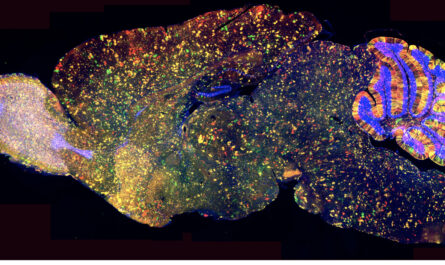In an innovative move, Lexus has revealed plans to introduce a self-driving assembly line for its next-generation electric vehicles. This groundbreaking technology will allow cars to autonomously navigate between stations during the manufacturing process, eliminating the need for traditional conveyor belts.
The announcement was made at the inaugural Japan Mobility Show, where Lexus also showcased its electric concept car, the LF-ZC. Designed with a sleek and angular aesthetic, the LF-ZC is set to be released in 2026.
So, what sets this technology apart from the rest? Well, let’s take a closer look. The LF-ZC incorporates steer-by-wire functionality, an AI voice system that resembles conversing with a butler, a wide stance for enhanced stability, and the use of bamboo fibers in its construction. Additionally, the car boasts prismatic high-performance batteries that aim to achieve double the range of conventional battery electric vehicles (BEVs).
However, perhaps the most intriguing feature of the LF-ZC is its ability to replicate various driving characteristics, sounds, and vibrations tailored to individual preferences. Notably, drivers will have the option to use the car’s steering wheel and pedals as controllers for video games and then transfer the sensation of the game’s car to the real car driving experience.
While concept cars often fall short of their promises, what distinguishes the LF-ZC is its unique factory production process. Lexus is developing its next generation of electric cars around a self-driving production line. The underlying chassis of each vehicle will consist of a three-part, rigid modular structure made using gigacasting. After assembling these three parts, along with pre-installed battery, motors, wheels, and wireless terminal components, the car will be capable of self-driving throughout the remainder of the manufacturing process.
This revolutionary approach not only eliminates the need for conveyor belts but also provides Lexus with added flexibility in terms of factory layout. Since the gigacast chassis is expected to serve as the foundation for a range of body types, the company will have the freedom to adapt and customize production stations for each specific model.
By implementing self-driving technology within the assembly line, Lexus is taking a significant step towards streamlining the manufacturing process and increasing efficiency. This innovative approach not only showcases Lexus’ commitment to technological advancement but also positions the company as a leader in the evolution of electric vehicle production.
With its sleek design, advanced features, and autonomous assembly capabilities, the LF-ZC and the self-driving production line represent a major milestone for Lexus. As the automotive industry continues to embrace new technologies, Lexus is setting itself apart by pioneering innovative solutions that redefine the future of car manufacturing.
*Note:
1. Source: Coherent Market Insights, Public sources, Desk research
2. We have leveraged AI tools to mine information and compile it




